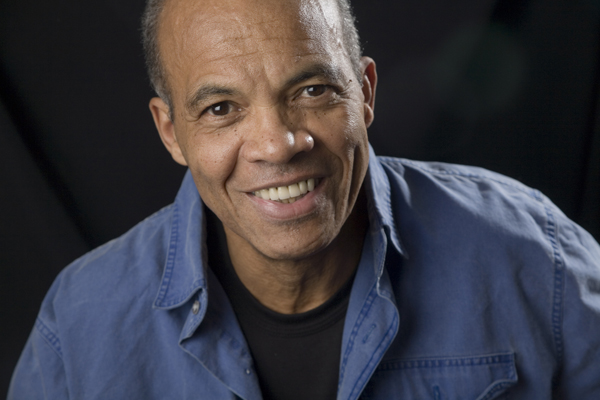

Renowned contemporary writer John Edgar Wideman was invited to the SUNY New Paltz campus on Friday, Oct. 15 as the fifth member of its Distinguished Speaker Series.
Wideman, who read and discussed in a number of Black studies classes, was brought to New Paltz to receive an Honorary Doctorate of Humane Letters. This was presented to the acclaimed author during a ceremony in the Lecture Center, which had attendees filling every seat and lining the walls.
“We honor your many achievements on this, our alumni reunion weekend, and in conjunction with our annual Diaspora conference…[to] explore the experiences of Diasporic peoples from Africa, Asia, Latin America, the Caribbean and the United States,” said SUNY New Paltz Interim President Donald Christian.
After the award was presented, Wideman took to the podium and read excerpts from his unpublished work-in-progress. In the piece, the main character ventures out in an attempt to learn about Louis Till, father of Emmitt Till, who, after reportedly wolf-whistling at a white general store clerk, was murdered by her husband and brother-in-law. Emmitt was 14 years old.
“Tonight, I’m simply going to be a performer,” Wideman said, “and try it out on an audience before the final draft.”
The audience was interested, but some wanted something more.
“[It] was a rare opportunity to hear an award-winning author’s unpublished work, and for that I felt privileged,” said fourth-year English major Britania Mallol. “On the other hand, [it] could’ve been more intriguing had Wideman spent less time reading and more time interacting with the audience.”
If Mallol had the chance, she would have experienced precisely that during the “enriching discussion” that took place at 3 p.m. in the Humanities building.
First giving a brief introduction about his life, work and methods, Wideman was then open to inquiries from the audience. In lieu of the intimidation factor speaking in front of an audience brings, Wideman said he’d rather walk around and shake hands, or “press the flesh,” to make it a more comfortable atmosphere.
Although the room wasn’t as bustling as the evening’s ceremony, it still housed numerous students and teachers alike, such as Cyrus Mulready, a professor in the English Department.
“I thought Wideman spoke to the range of interests and responses to his work, and also managed to give some advice to aspiring writers in the audience,” he said. “He has been one of the most important voices in contemporary African American literature and culture.”
A variety of Wideman’s published work is now available in the campus bookstore.
